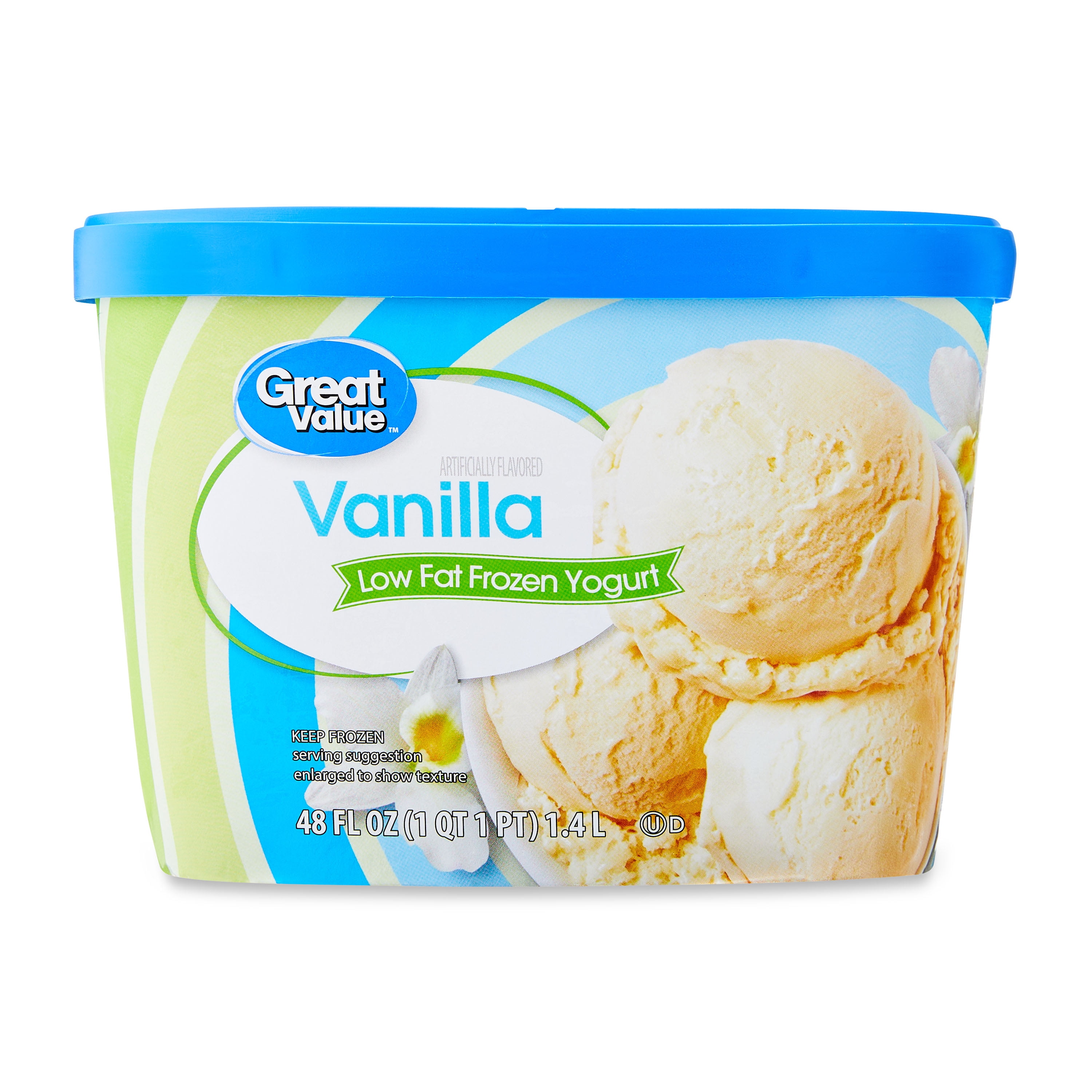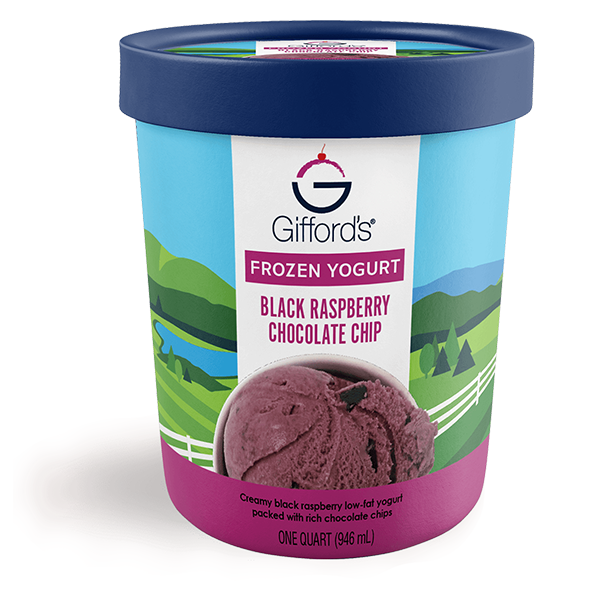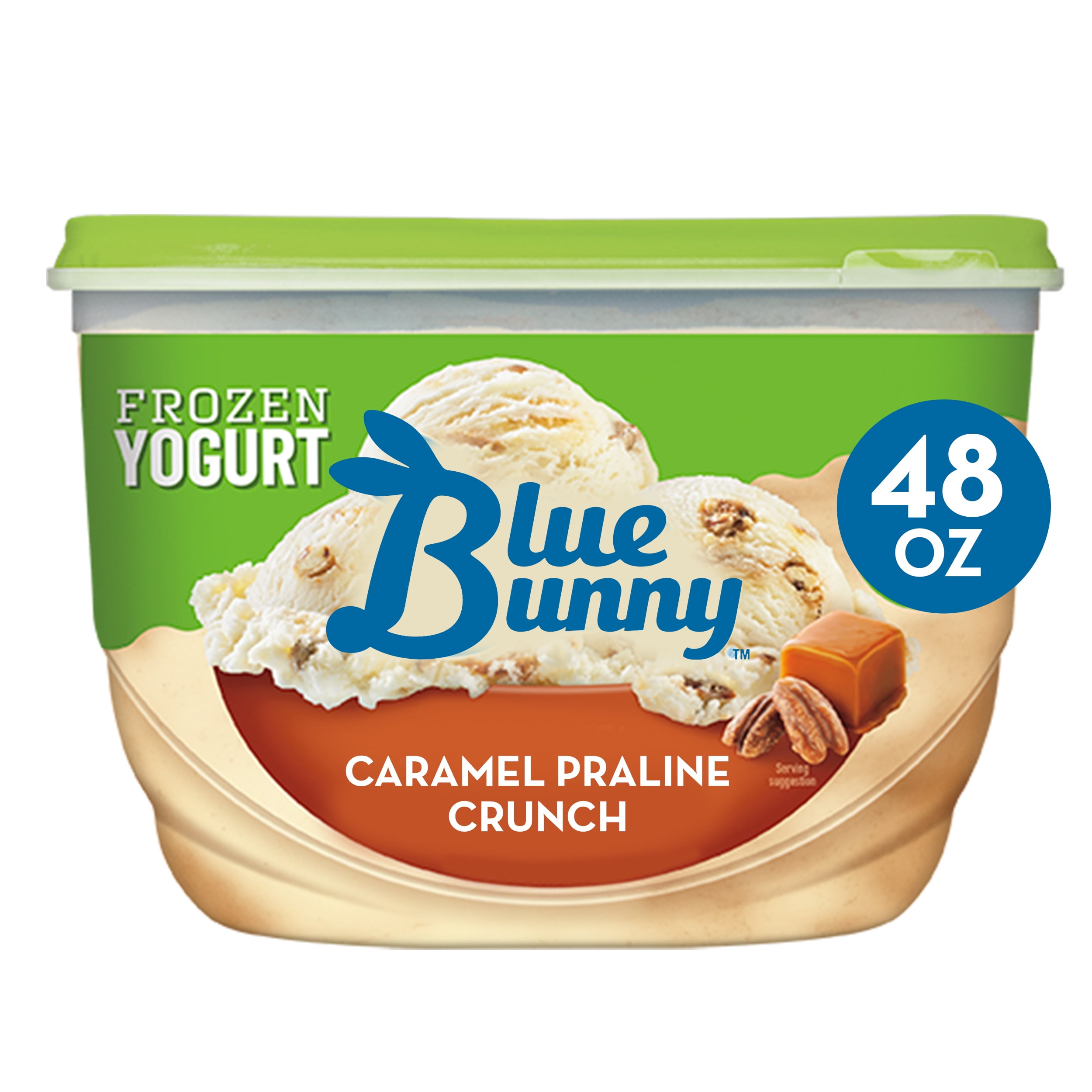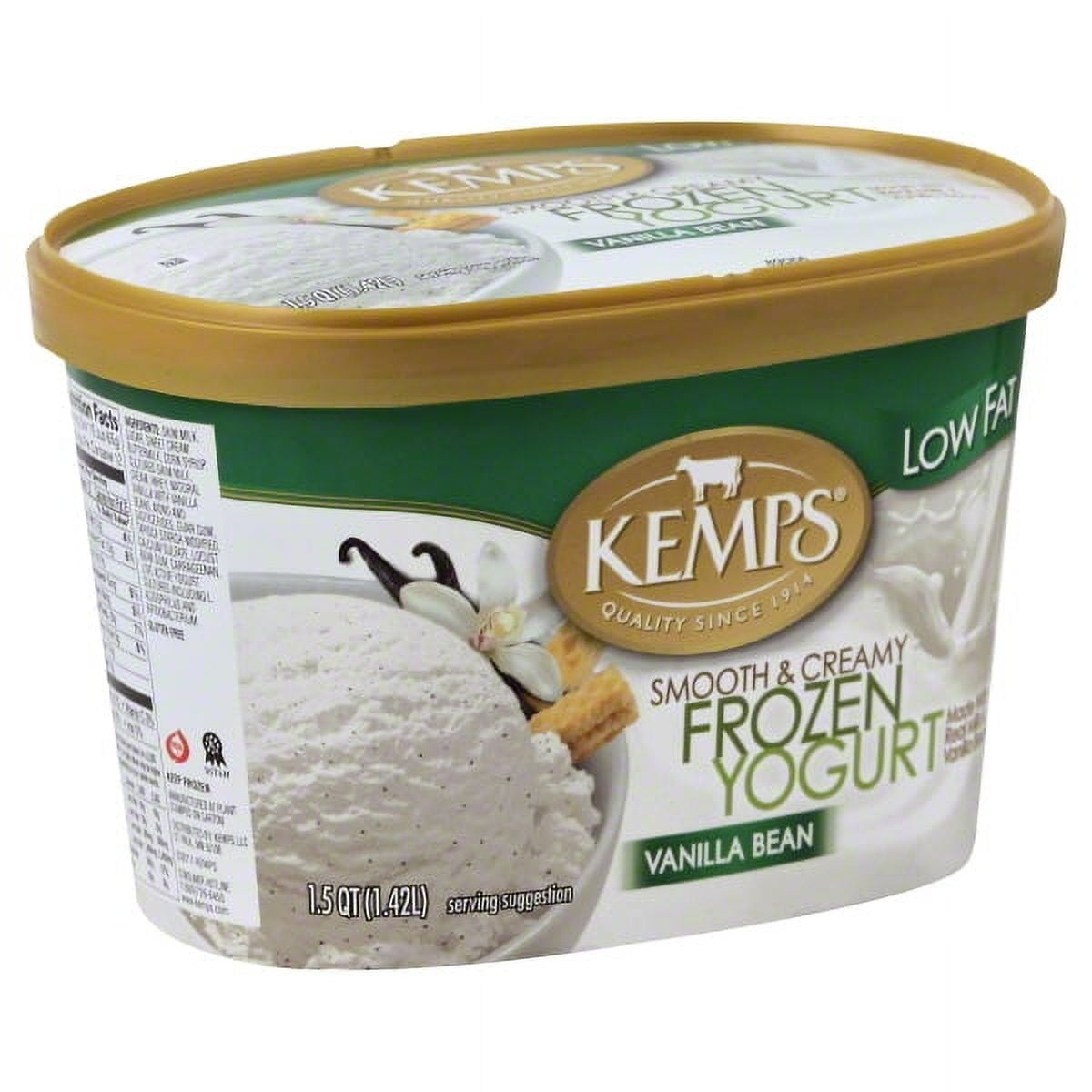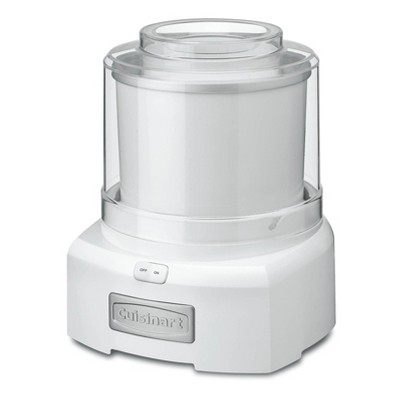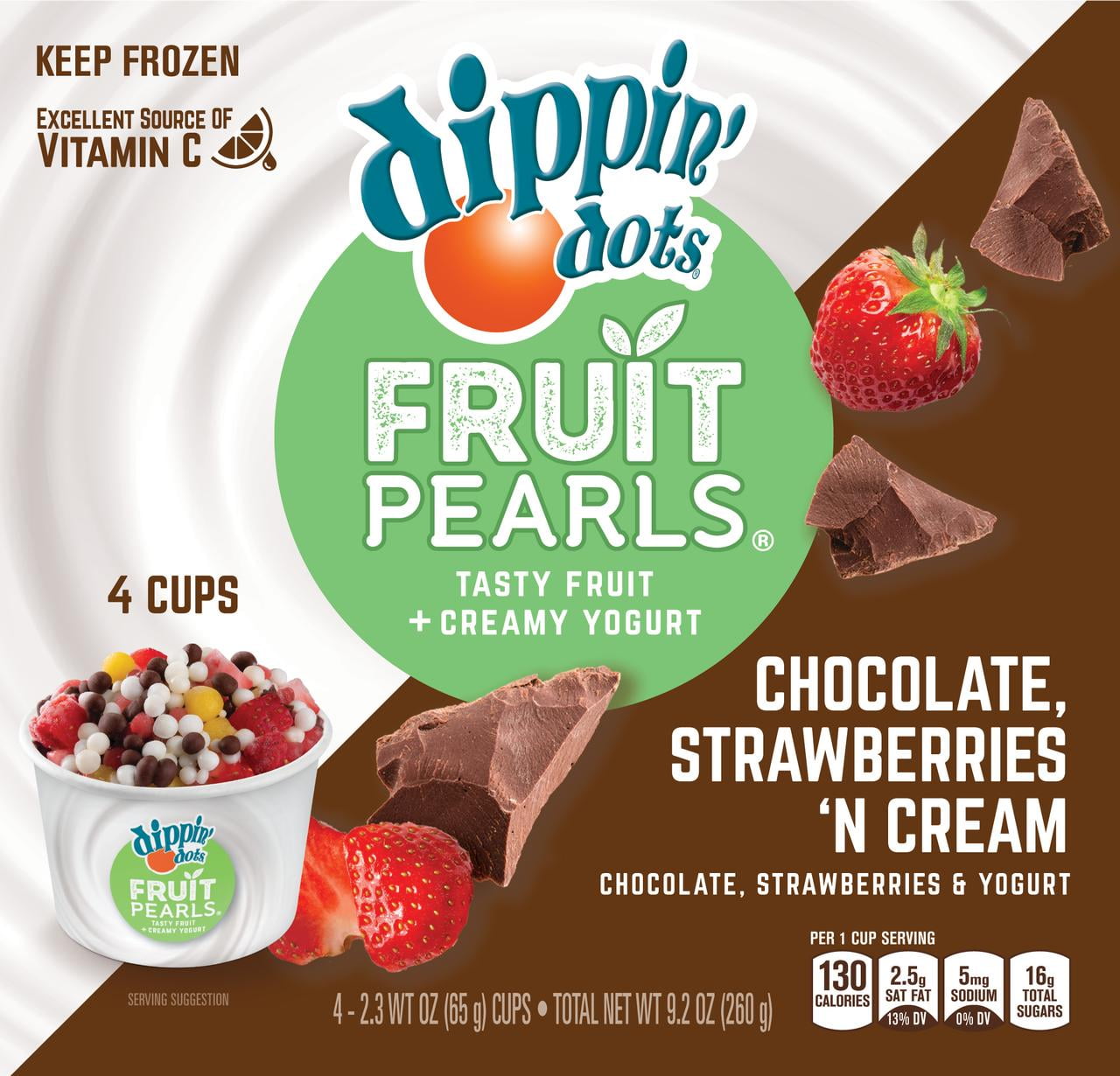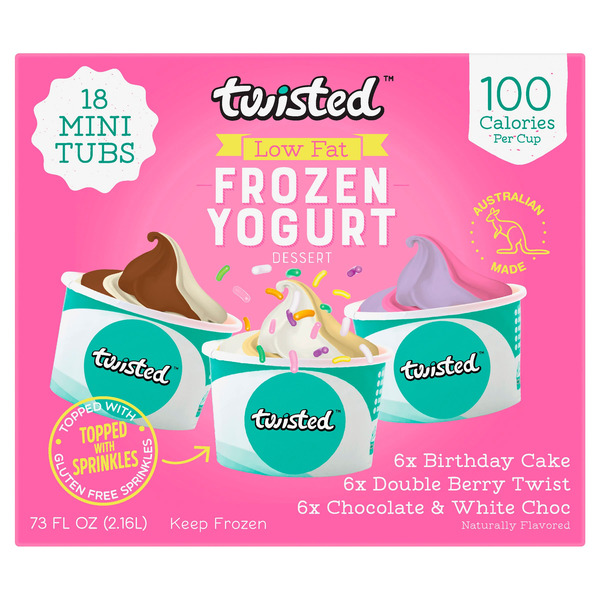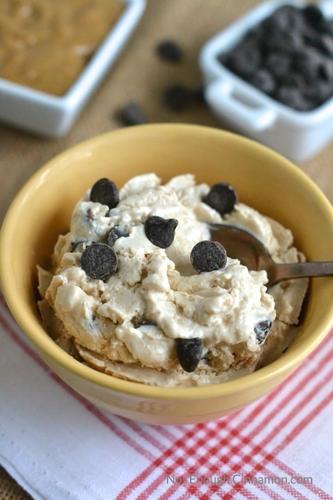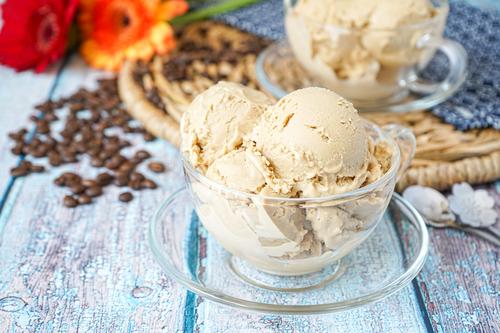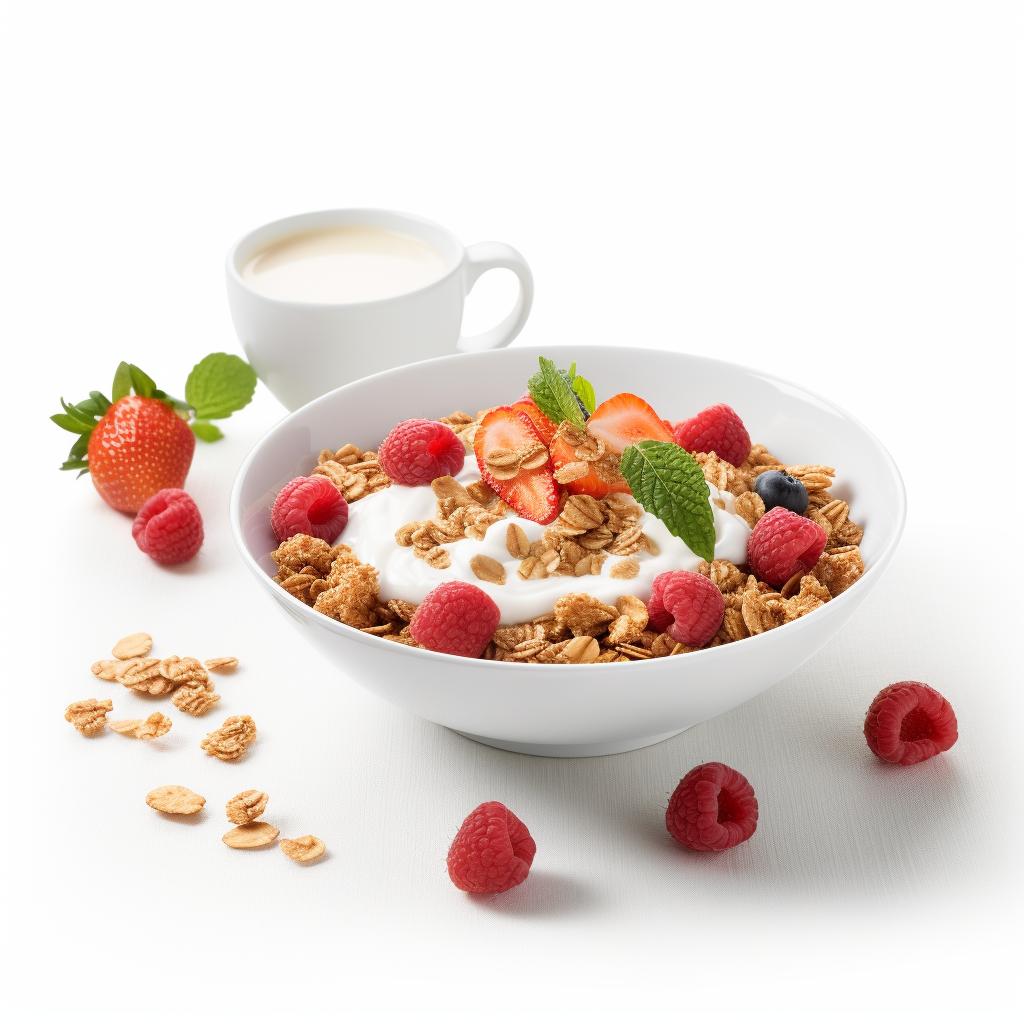DESSERTS
Frozen Yogurt
Frozen yogurt, also known as froyo, is a popular frozen dessert made from yogurt and other dairy products, sweeteners, and natural or artificial flavorings. It is often considered a healthier alternative to traditional ice cream, as it typically contains less fat and fewer calories, while still providing the cold, creamy texture that many people enjoy.
Froyo found its origins in the United States in the 1970s and has since become a favorite treat for people worldwide. Available in various flavors, it can be served soft or firm, and is often customized with a wide range of toppings, including fruits, nuts, candies, and syrups, making it a versatile and delectable dessert choice for those looking for a more nutritious option.
72%
CARBS
17%
FAT
12%
PROTEIN
Featured Articles
747 Frozen Yogurt Products
Member's Mark Santa's Milk and Cookies Sundae
Great Value Vanilla Low Fat Frozen Yogurt
Giffords, Low Fat Yogurt, Black Raspberry, Chocolate Chip, Black Raspberry, Chocolate Chip
Member's Mark Peaches and Cream Sundae
Blue Bunny Caramel Praline Crunch Frozen Yogurt
Kemps Smooth & Creamy Low Fat Frozen Yogurt Vanilla Bean
Member's Mark Be Mine Choco-Strawberry Sundae
Cuisinart Automatic Frozen Yogurt and Ice Cream and Sorbet Maker - White - ICE-21P1
Dippin' Dots Fruit Pearls Chocolate, Strawberries 'n Cream
Twisted Low Fat Frozen Yogurt Dessert Variety Pack, 18-count
16 Recipes for Frozen Yogurt
Frozen Yogurt Is Frequently Used With
Frozen Yogurt FAQ
Frozen yogurt pulls a sneaky one on many health-conscious consumers. While it does indeed have fewer calories and less fat than traditional ice cream, it often contains more sugar, leading people to mistakenly believe they're making a healthier choice when in reality, they could be consuming the same amount – if not more – of sugar. The best way to avoid this pitfall is to always check the nutritional label, keeping a sharp eye on the sugar content.
Moreover, not all frozen yogurt is the same. Some brands use low-quality, artificial ingredients and flavorings that undercut its nutritional value. Therefore, choosing a high-quality froyo is key, look for ones made using real yogurt and natural ingredients.
When it comes to getting the most out of your frozen yogurt, consider tossing on some healthy toppings. Fresh fruits, nuts, and granola can actually boost the nutritional value of your dessert, not to mention enhance its flavor. Resist the temptation to overload on sugary sauces and candy toppings, as these can easily turn your 'healthy' treat into a calorie bomb.
Lastly, remember, while frozen yogurt can indeed be part of a balanced diet, like most indulgent foods, it's best consumed in moderation.
How is frozen yogurt different from ice cream?
Is frozen yogurt healthier than ice cream?
Does all frozen yogurt have probiotics?
What can I add to frozen yogurt?
Why does my homemade frozen yogurt turn icy?
Can diabetics eat frozen yogurt?
How often can I eat frozen yogurt?
Is there lactose in frozen yogurt?
Can I freeze regular yogurt to make frozen yogurt?
What is the 'tangy' taste in frozen yogurt?
Expiration & Storage Tips
When does frozen yogurt expire?
In unopened, store-bought packaging, frozen yogurt typically lasts 3-4 months past its printed date in the freezer. Once opened, it's best to use it within 1-2 weeks to maintain its best quality, although you can still safely consume it for much longer, up to 1-2 months. If letting the yogurt thaw slowly in the fridge before use, consume within 3-4 days.
How do you tell if frozen yogurt is bad?
The best way to tell if frozen yogurt has gone bad is by looking at it and smelling it. If you observe a dry or crumbly texture, discoloration or spots of freezer burn (white or grayish patches where it has dried out), these are signs the frozen yogurt has started to go bad. If there's a strange or off smell, definitely throw it out. And remember, if you’re in doubt, throw it out! You wouldn't want spoiled frozen yogurt ruining your day!
Tips for storing frozen yogurt to extend shelf life
• Always store frozen yogurt tightly sealed in its original packaging or in airtight containers to prevent freezer burn.
• Write the date of purchase on the package to help keep track of its age and quality.
• To soften frozen yogurt for serving, place it in the refrigerator for about 30 minutes before you want to eat it.
• If your frozen yogurt has become too hard, place it in a sealed, plastic bag and immerse it in cold water to help quickly and safely soften it.
• If you have already served the frozen yogurt and have leftovers, avoid refreezing it. The thawing and refreezing process can cause it to lose its smooth and creamy texture.
EXPIRES WITHIN
4 - 6
MONTHS
Equivalents
Health Info
Macros
48g
CARBS
11g
FAT
8g
PROTEIN
Allowed on these diets
LOW FAT
HIGH CALCIUM
VEGETARIAN
GLUTEN FREE
Contains these allergens
MILK



